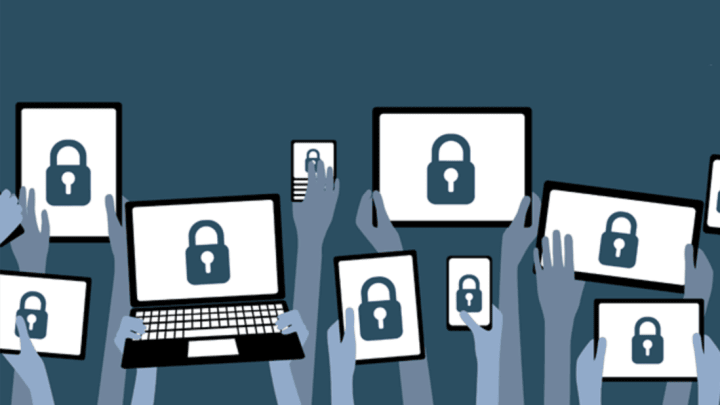Advancements of modern technology are actually making us safer—not only can new forms of password protection help to safeguard our digital files and documents, advances in voice recognition and gesture control also create a heightened degree of security for our devices and homes.
1. DATA ENCRYPTION KEEPS YOUR INFORMATION FOR YOUR EYES ONLY
As remote computer hacking becomes a greater concern, the marriage of data to a local hard drive—or better yet, to a small set of drives—can be the best course of action for any individual or company hoping to keep information safe. Hardware- and software-based data encryption systems encode your information so that only authorized parties are able to retrieve and read it.
2. TRACK DOWN AND LOCK YOUR COMPUTER IF LOST
You can safeguard all the prized data you have stored on a particular computer even if the device has been misplaced. New free apps (like Prey) and paid software (like LoJack) allow you to locate your missing device and lock your hard drive by phone or Internet on a trusted second device.
3. FINGERPRINTS REPLACE PASSWORDS
Traditionally, access to a secure personal computer is granted via a typed password. Now, many devices come equipped with an option to unlock with a fingerprint scan. Hackers might be able to guess your password, but it’ll be pretty tough for them to reproduce your fingerprint!
4. AS DOES FACIAL RECOGNITION
For another (and arguably even more impressive) option, the Intel Security True Key™ app can actually memorize the mathematical structure of your face and grant access to your files following facial scans. Minute details like the distance between your eyes register with your computer’s memory, enabling it to discern between your visage and somebody else’s.
5. USE YOUR MOBILE DEVICE AS AN ADDITIONAL MEASURE
To double down on the security of your personal files, make sure that you can only access one of your devices with another of your devices. The True Key app also allows you to program your cell phone to act as a “key” needed to unlock your laptop or tablet.
6. APPLY THESE PASSWORD SUBSTITUTES TO YOUR FRONT DOOR
The beauty of such security upgrades is that they are not exclusive to your laptops and cell phones: True Key will one day enable you to gain entry to your home.
7. LOCK YOUR DOORS AND ARM YOUR SECURITY SYSTEM REMOTELY
Say you left the house in a rush, forgetting to lock your doors or arm your home security system. Both tasks can now be done via mobile phone. This also comes in handy for house sitters, dog walkers, or any other trusted parties who might be stopping by while you’re not home. Keep the doors locked all day until the friend in question is scheduled to arrive, and then allow access as simply as flipping a digital switch.
8. RECEIVE ALERTS OF UNAUTHORIZED ENTRY
In the event that an intruder does manage to breach your front door, ADT home automation technology can send immediate alerts to your mobile device—whether you are in the house or miles away at the time of break-in—allowing you to take the necessary precautions to ensure your and your household’s safety.
9. IT CAN WORK FOR YOUR CAR, TOO
The same remote locking and unlocking capabilities applied to your computer or household could soon be available to your car. True Key is even working toward applying fingerprint and facial recognition technology to car security.
10. WIRELESS CHARGING
Connecting your phone to a strange charger, wire, or outlet can prove dangerous, as there is no shortage of means that hackers and thieves use to interlope computers and apprehend data. The integration of wireless charging technology, possible through the electricity-sharing capabilities of metal coils, into storefronts and business sites all across the world not only reduces the risk of connecting to a dangerous power source, but also leaves you far less likely to wind up without an active phone or computer in a time of need.
11. BANK MORE SAFELY
If you conduct your banking online, it might be worthwhile to sync up your personal computer to your digital bank account. On top of mandating your username and password upon login, the program necessitates that you access it through a specific device (or devices) previously decreed by you as safe. If you bolster these computers with fingerprint or facial recognition security, yours will be a tough vault to crack even if your account information does happen to fall into the wrong hands.
